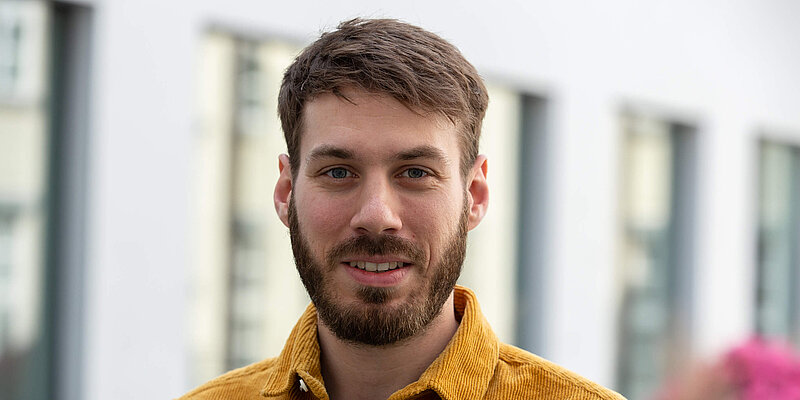
Hertie School alumnus Moritz Voelkerling (MPP 2015) writes policy for Chancellery.
Moritz Voelkerling works at the fast-paced nerve-centre of the German government – Angela Merkel’s Chancellery. His area of focus, the German car industry, is both highly topical – in recent times, tumultuously so – and the lifeblood of Europe’s largest economy.
He has had an intense first year in the Chancellery with a steep learning curve. “I am so close to what is happening in the country that it is sometimes a bit scary,” he laughs. He writes two policy briefs for Merkel a day. He has on occasion accompanied the chancellor on appointments, although contact is primarily via his department manager and Merkel’s chief economic advisor.
The Chancellery staff is organised into seven departments to mirror the federal ministries. Moritz’s department serves as the counterpoint to the Economics Ministry, Finance Ministry and Transport Ministry. Though the auto industry would be enough to occupy him full-time, Moritz also covers shipping, ports and commodities. Some days, he deals with up to ten different topics – looking at subjects as diverse as digitalisation, trade conflicts and developments in export markets.
Moritz’s first degree, from Bonn University, was in economics. He chose to do a Master of Public Policy at the Hertie School – specialising in financial and fiscal studies – to gain a more practical, generalist political grounding, and graduated in 2015. He successfully applied for a nine-month graduate traineeship at the Bundesbank, the German central bank, and was subsequently offered a job focusing on financial market regulation.
Based in Frankfurt, he was surrounded by expert economists who didn’t always consider the political aspects of their work – something the Hertie School had equipped him to do. “You always have to take the influences of the political environment into account and they are sometimes completely irrational,” Moritz says. “Economists hate nothing more than irrationality. So you have to learn to adapt to the political world.”
But Moritz felt he needed to advance his knowledge of economics if he planned to stay at his job at the Bundesbank. He had already signed up for a long-distance masters in quantitative finance in 2018 when he was offered a secondment from the Bundesbank to the Chancellery – a position better suited to his qualifications.
“I had got to a kind of crossroads,” he says. “Either I had to get deeper into economics and go in that direction, or I had to go in the direction I was trained for.”
His post at the Chancellery is a perfect fit for his studies. “You need to think as an economist, but combine that with an understanding of the larger context,” he says.
He is grateful for his Hertie School training in writing policy memos. “It is one of those things that you wonder about at the time – whether it is really relevant,” he says. “Now I know that it is totally relevant. There are a lot of lawyers working at the Chancellery and they have a tendency to write super-long legal reports. Being able to write to the point without rambling is something you learn at Hertie.”
His secondment at the Chancellery is initially for two years with an optional one-year extension. Moritz is enjoying every moment and feels at home in the Berlin district of Charlottenburg, where he lives with his American wife.
Future options may include switching to a ministry, working for a German corporation in the field of public policy or going back to the Bundesbank. “But so far, it has never been worth me looking too far into the future,” he says. “Something unexpected has always come up.”
Learn about the Master of Public Policy and upcoming events for prospective students.
